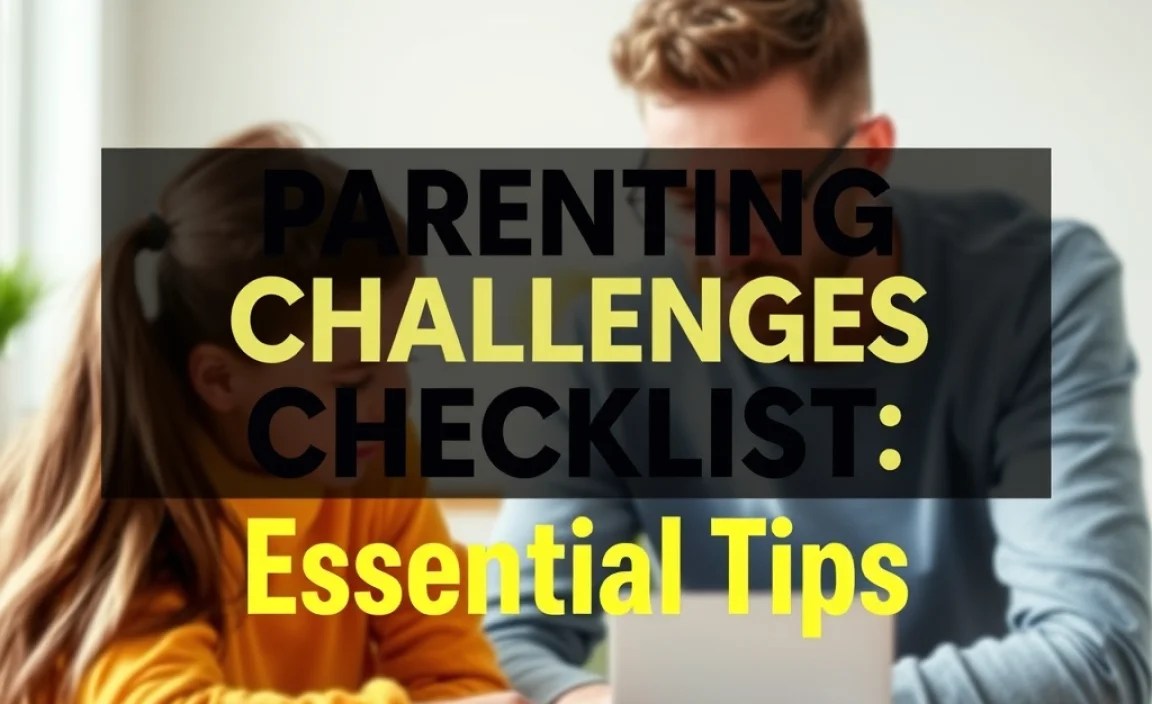At A Glance
Single Parenting for Beginners: Effortless Guide

Single parenting for beginners can often feel like stepping onto a tightrope without a net. The sheer volume of responsibilities, the emotional rollercoaster, and the constant juggling act can be overwhelming. Yet, with the right mindset, practical strategies, and a healthy dose of self-compassion, navigating this journey can transform from a daunting challenge into a rewarding adventure. This guide is designed to equip you with the foundational tools and insights to not only survive but also thrive as a solo parent.
Embracing the New Reality: Shifting Your Mindset
The first and perhaps most crucial step in single parenting for beginners is to acknowledge and embrace your new reality. It’s natural to grieve the loss of a partnership or the life you envisioned. Allow yourself time and space to process these emotions without judgment. However, dwelling in the past will hinder your progress. Instead, focus on the strengths you possess and the incredible capacity you have to nurture your child. Visualize your family unit not as diminished, but as a powerful, resilient team of two (or more!). Recognize that you are the architect of your child’s upbringing, possessing the unique opportunity to shape their world with your values and love. This shift in perspective is foundational to building a positive and empowered single-parent household.
Building Your Village: The Power of Support
One of the biggest misconceptions about single parenting is that you have to do it all alone. This couldn’t be further from the truth. In fact, seeking and accepting help is a sign of strength, not weakness. Building your support network is paramount. This “village” can comprise family members, close friends, neighbors, or even other single parents you connect with. Don’t be afraid to ask for specific help: childcare for an hour so you can grocery shop, a meal delivered when you’re exhausted, or simply someone to talk to when you’re feeling overwhelmed. Online communities and local support groups are invaluable resources for connecting with others who understand your unique situation. Sharing experiences, trading tips, and offering mutual encouragement can make a world of difference. Remember, your child also benefits from positive interactions with a variety of caring adults.
Establishing Routines and Structure
For single parenting for beginners, predictability and structure are your allies. Children thrive on routine, and it can bring a sense of calm and security to your household. This includes consistent bedtimes, mealtimes, and chore schedules. While flexibility is important, having anchor points in the day can reduce power struggles and make daily life more manageable. Involve your child in establishing these routines where appropriate to foster a sense of ownership and cooperation. For example, let them choose their outfit the night before or help set the table. This not only helps them develop responsibility but also reduces morning chaos. Consistency is key, even when it feels challenging.
Financial Management: A Practical Necessity
Financial stability is a cornerstone of any well-functioning family, and single parenting for beginners often necessitates a keen focus on budgeting. Take stock of your income and expenses, and create a realistic budget that accounts for all your needs. Explore all available financial resources, including government benefits, child support arrangements, and potential new income streams. Don’t be afraid to research options for affordable childcare, educational programs, or even recreational activities. Open and honest communication with your child about finances, age-appropriately, can also help them understand limitations and appreciate what they have. Prioritizing needs over wants and being proactive about financial planning will alleviate a significant source of stress.
Self-Care: Not a luxury, but a necessity
It’s easy to put your own needs last when you’re solely responsible for a child. However, neglecting self-care is a recipe for burnout. Think of it as filling your own cup so you have more to give to your child. Even small, consistent acts of self-care can make a profound impact. This could be as simple as taking 15 minutes for a quiet cup of tea, going for a short walk, listening to your favorite music, or engaging in a hobby you enjoy. Prioritizing sleep, healthy eating, and regular exercise will also boost your energy levels and resilience. Remember, you are modeling self-respect and well-being for your child simply by taking care of yourself.
Effective Communication with Your Child
Open and honest communication is vital in any family, but it takes on added importance when you’re the sole parent. Be transparent with your child about your situation in an age-appropriate manner. This doesn’t mean burdening them with adult problems, but rather explaining who is involved in their life and why things might be different. Listen actively to your child’s concerns and fears. Validate their feelings and reassure them of your unwavering love and commitment. Creating a safe space for them to express themselves will build trust and strengthen your bond.
Navigating Co-Parenting (If Applicable)
If your child has another parent involved, navigating co-parenting can add another layer of complexity. For single parenting for beginners where co-parenting is a factor, focus on maintaining a civil and respectful relationship with the other parent, even if the romantic relationship has ended. Prioritize your child’s best interests above all else. Establish clear communication channels and try to reach agreements on important decisions regarding your child’s upbringing, education, and well-being. If conflict is a persistent issue, consider mediation or professional guidance to help facilitate constructive dialogue.
Embracing single parenting is a journey of continuous learning and adaptation. By focusing on building your support system, establishing routines, managing your finances wisely, prioritizing self-care, and fostering open communication, you are laying a strong foundation for a happy and fulfilling life for both you and your child. Remember to be patient with yourself, celebrate your successes, and trust in your inherent strength and capacity as a parent.




